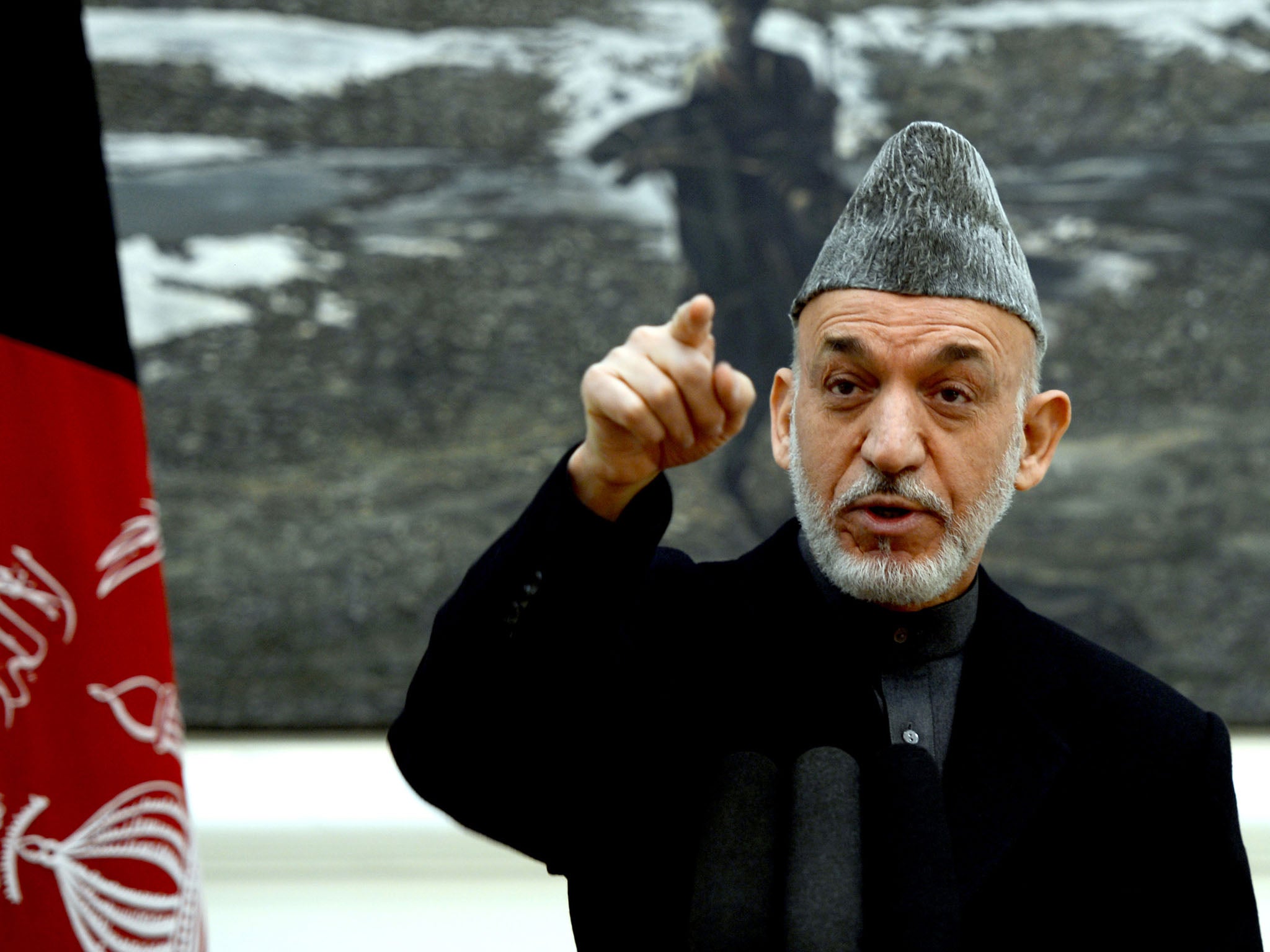Afghan president sees Pakistani work in bombing attempt on spy chief

Your support helps us to tell the story
From reproductive rights to climate change to Big Tech, The Independent is on the ground when the story is developing. Whether it's investigating the financials of Elon Musk's pro-Trump PAC or producing our latest documentary, 'The A Word', which shines a light on the American women fighting for reproductive rights, we know how important it is to parse out the facts from the messaging.
At such a critical moment in US history, we need reporters on the ground. Your donation allows us to keep sending journalists to speak to both sides of the story.
The Independent is trusted by Americans across the entire political spectrum. And unlike many other quality news outlets, we choose not to lock Americans out of our reporting and analysis with paywalls. We believe quality journalism should be available to everyone, paid for by those who can afford it.
Your support makes all the difference.Afghan President Hamid Karzai has charged that the suicide bomber who tried to kill his top intelligence aide in the Afghan capital on Thursday had come from next-door Pakistan and that the assassination plot had been "designed" there.
Speaking with journalists at the presidential palace in Kabul, Karzai said Asadullah Khalid, head of the National Directorate of Security, was expected to "recover completely" and return to work. Khalid was severely injured in the bombing and flown to Bagram air base, the main U.S. military base in Afghanistan, for medical treatment.
Although Karzai vowed that the "peace process will continue," the attack marked a severe setback to Afghan and U.S. hopes for progress on long-stalled peace talks with the Islamist insurgents. Karzai's allegations of Pakistani involvement seemed likely to undermine recent positive steps in the contentious relationship between the neighboring Muslim countries.
Karzai stopped short of accusing Pakistan's intelligence agency of planning the attack, but he described it as a "very sophisticated and complicated act by a professional intelligence service" and said his government would be "seeking a lot of clarifications from Pakistan" about the incident.
He said he was certain the bomber had come from Pakistan. "We know it as a fact," he said. He did not offer any details or evidence. He and other Afghan officials have often accused Pakistan's military and intelligence services of working against Afghan interests and fomenting violence there.
Pakistan has said it supports the peace process, and recently it released a number of Taliban prisoners as a goodwill gesture after an Afghan peace committee visited Islamabad. But Pakistan's military and intelligence services have maintained relations with Taliban leaders, apparently hedging their bets in case the Islamist militia returns to power. Some Taliban leaders are widely believed to live freely in Pakistan's border regions.
Afghan intelligence officials said the bomber, thought to be a peace messenger from the Taliban, was invited to a guest house used by Khalid in Kabul and blew himself up as he greeted the intelligence chief. They said he had explosives in his underwear. Karzai said he was not searched because of Khalid's "respect for our traditions and hospitality."
An almost identical scenario resulted in the death of former Afghan president Burhanuddin Rabbani in September 2011. In that case, another ostensible peace emissary from the Taliban entered Rabbani's house in Kabul and was not searched. Upon greeting the former president, the man detonated a bomb in his turban.
At the time, Afghan officials suggested more directly that Pakistan's intelligence service was behind the attack on Rabbani, who was then heading a national peace council promoting negotiations with the Taliban.
Spokesmen for the Afghan Taliban asserted responsibility for Thursday's attack on Khalid, but Karzai said that "more professional hands" were behind it. He suggested the bombing was a professional plot by an intelligence service "in our neighborhood, or somewhere else."
The Afghan president had appointed Khalid to several top posts, including two governorships, before making him his spy chief in September. Karzai said his national security adviser and defense minister visited Khalid on Friday and reported that he was able to talk and move his hands. Officials said the bomb caused multiple wounds to his lower body.
Khalid, 43, is a controversial figure who has been accused by international human rights groups and diplomats of running a secret dungeon and being involved in drug trafficking. However, he is also known as a tough anti-Taliban leader and is one of Karzai's most durable political associates.
- - -
Javed Hamdard in Kabul contributed to this report.
Join our commenting forum
Join thought-provoking conversations, follow other Independent readers and see their replies
Comments